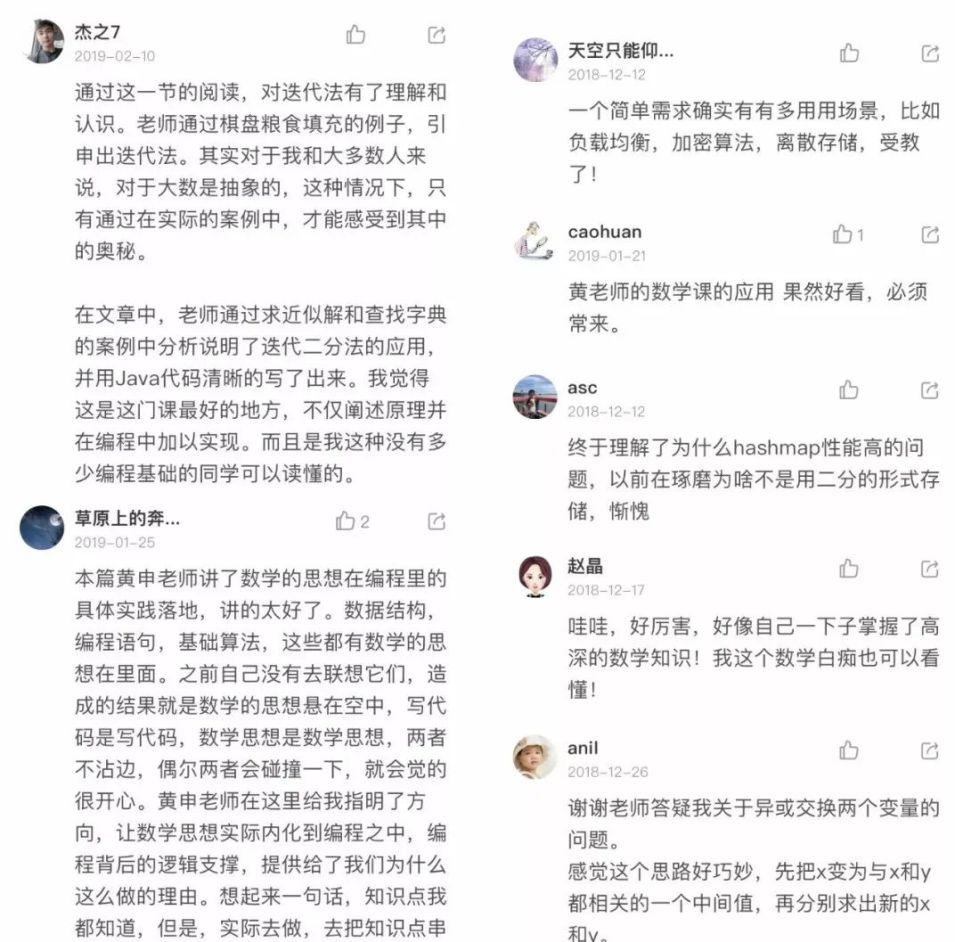Whenever I want to delve into the content related to algorithms, some of the complex mathematical knowledge involved in it sometimes becomes a "roadblock".
I admit that I didn't do well in math, but it wasn't bad either. However, this "no-up" mathematical level is completely unable to cope with interviews with big Tech companies in the industry (Amazon, Apple, Google, Facebook, and Microsoft), especially when the interview is asked some questions about algorithms, such as the time and space complexity of an algorithm, or the comparison between specific sorting and search algorithms.
So I'm going to learn all these knowledge points. In the process of searching and learning, I gathered several articles about the mathematical knowledge required for programming.
When it comes to programming, the most well-known supporter of mathematics is Steve Yegge. Regarding the mathematics required for programming, I have listed the following for your reference:
Math notes
《Math for Programmers》
How much math does it take to become a hacker
Talk about math
Math Hack
Examples of Fibonacci Numbers Implemented in C
If you haven't read the above, you may have missed the intention I was writing this blog to express. According to Steve Summit, Eric Raymond, and Paul Graham, you don't need to focus too much on math to be a great programmer or a hacker (hacker in general refers to the wikipedia definition of hacker and Eric Raymond's definition of hacker).
Steven Noble believes that programmers should know some math; Evan Miller seems to agree with that view to some extent. I myself just started programming out of love.
Since 2009, I've programmed primarily in C, sometimes in C++, and most of the time in Linux and UNIX environments. I'm passionate about programming and sometimes need to program in a number of different languages, so I have to learn to work in a different way of thinking. Writing code is not difficult, but using a specific programming language and finding ideas and building models according to certain paradigms is the hardest and most time-consuming work.
I have read a lot of mathematical materials on the market, either too difficult or too abstract, there are really not many that can be in-depth and simple, "Programmer's Basic Mathematics Course" is one of them. Following the study, let me connect the algorithm and the mathematical model, and sort out some of the previous blind spots, and I have time to brush it two or three times.
This course is ideal for programmers and prospective programmers who want to have a solid foundation in mathematics, and the learning path in the course will allow you to consolidate the basics and gain an in-depth understanding of what these things mean for computer programming and algorithms. Through the key steps of "Mathematical Concepts - Mathematical Models - Data Structures - Basic Algorithms / Machine Learning Algorithms - Coding Implementations", you have a deep understanding of mathematics in programming.
To pick up a course that has been studied for more than ten years, it still has to "take some effort". A good teacher can simplify complex problems and make obscure knowledge points easy to understand, and the author of this course, Huang Shen, is such a person.
About this dude:
LinkedIn Senior Data Scientist and Microsoft Scholar, member of ibm's ExtremeBlue Genius Program.
Long-term focus on big data related search, recommendation, natural language processing, advertising and user precision;
He has held key positions in Microsoft Research Asia, IBM American Research, eBay China, Yihaodian and RT-Mart Flying Bull, and led the team to complete several company-level strategic projects;
Author of more than 20 international papers and more than 10 international patents;
People of this qualification give special lectures, and to be honest, it's rare. The column has been subscribed to by nearly 6 W people, and the review is cut off for your reference:

In addition to the excellent content of this column, there are 3 points that must be mentioned:
First, the column is full of pictures and text, I found that the hand-drawn film is really good-looking, there is no such thing in the math book, it is an exclusive benefit for programmers;
Second, at the end of each chapter, the teacher will summarize the "study notes" for the content of this lecture, which is convenient for everyone to remember, can be saved, and viewed at any time;
Third, the teacher of each article will leave a thinking question of moderate difficulty, and patiently interact with everyone in the comment area to answer the questions raised by everyone.
The original price of the course is 199 yuan, the limited-time discount is only 119 yuan, the course also joined the super membership system, opened a member, and can win more than 190 courses on the platform at one time.
If you add up all the more than 190 courses and columns in the APP, according to the previous unit price, the total price has reached more than 30,000. And now, as long as 499 members, one wins courses and columns at once.
To be honest, this plan is very conscientious. After all, 499 may have been able to buy only a few columns before
Geek Time is a platform where courses are primarily about IT, products, and career skills, making it ideal for Internet students.
In the matter of learning, the return is greater than the investment, rush!